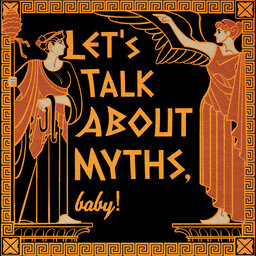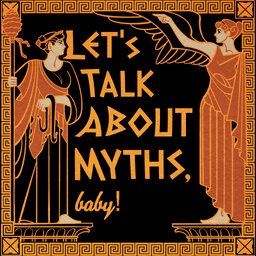They Don't Call Eris the Goddess of Strife For Nothing! Revisiting Ancient Horror
After nearly four years of evading the plague, Liv has been snared by the Eris Variant. The official Halloween special will have to wait, in the meantime here are more Spooky Season Favourites. Help keep LTAMB going by subscribing to Liv's Patreon for bonus content!
CW/TW: far too many Greek myths involve assault. Given it's fiction, and typically involves gods and/or monsters, I'm not as deferential as I would be were I referencing the real thing.
Episodes featured (see the originals for more information): My Favorite [Ancient] Murder, Nyx, Eris, and their Deadly Dynasty; The Lycanthropic Tale of Lycaon & Other Ghosts & Werewolves; and Blood-soaked Trees, Erysichthon Eats Himself & Bonus Boogeywomen of Ancient Greece.
Attributions and licensing information for music used in the podcast can be found here: mythsbaby.com/sources-attributions.
Let's Talk About Myths, Baby! Greek & Roman Mythology Retold
The most entertaining and enraging stories from Greek mythology and the wider Ancient Mediterranean …Social links
Follow podcast
Recent clips

AHFG Book Club: Jenny Williamson's Enemy of My Dreams
1:16:02

RE-AIR: Conversations: A Long and Storied History of Sparta, Modern Misuse & Misconception w/ Stephen Hodkinson
1:40:25

Hermes Historia: Giorgos the Oikist, Colonization in Greek Antiquity
42:43
 Let's Talk About Myths, Baby! Greek & Roman Mythology Retold
Let's Talk About Myths, Baby! Greek & Roman Mythology Retold